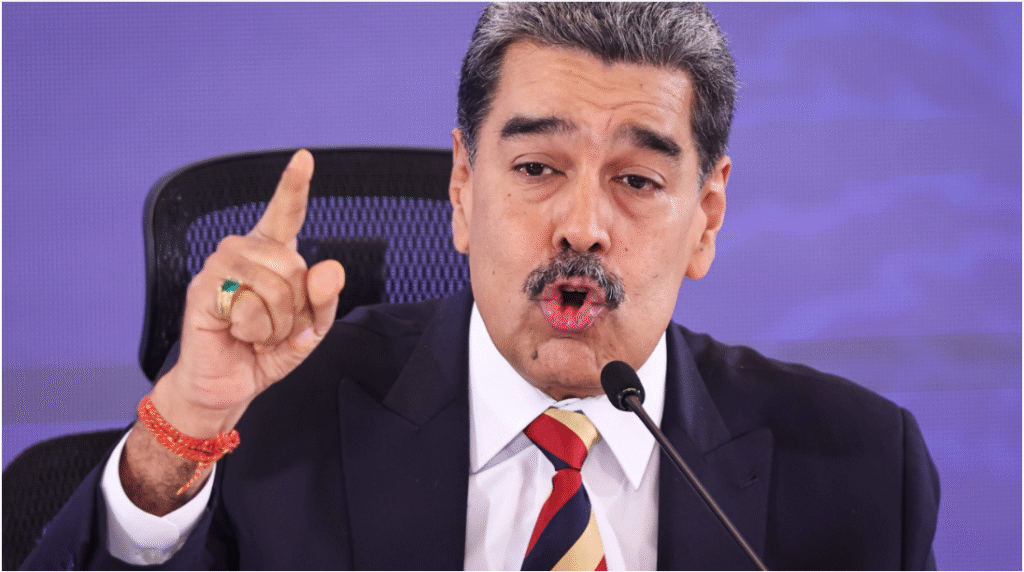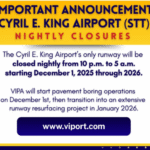Now that President Trump has deployed the largest U.S. warship in the Caribbean and Venezuela’s dictatorship fears an imminent U.S. attack, he should urgently offer an exit strategy to Venezuela’s beleaguered regime.
Granted, Venezuelan dictator Nicolás Maduro has been offered those kinds of deals several times in the past, and he has always used them to buy time before walking away from his promises.
But this time, it may be different, according to a growing consensus among Venezuelan analysts. Unlike in the past, there is now a credible threat of a U.S. military attack on Venezuela.
José Morales-Arilla, a Harvard-educated professor at Mexico’s Tecnológico de Monterrey university, wrote a November 18 article in Caracas Chronicles that the time has come for Trump “to offer credible off-ramps in Venezuela.” He adds that military pressure, combined with “a smart amnesty strategy,” can break the Maduro regime’s coalition.
Asked what he means by “a smart amnesty strategy” Morales-Arilla told me in an interview that, in coordination with Venezuelan opposition leader and Nobel Peace Prize winner María Corina Machado, Trump should propose a two-tier exit plan for Venezuela’s rulers.
Maduro and other officials responsible for crimes against humanity should be offered safe passage to a country where they would feel safe — much as Syria’ s Bashar al-Assad sought refuge in Russia last year, he said. That may be the only way to get them out of power, because otherwise they will never leave peacefully.
“They know that the history of other dictatorships shows that if Venezuela returns to democracy, they will be prosecuted for their crimes regardless of whatever promises are made to them today,” he said.
But there is a second tier of Venezuelan officials who are not directly responsible for gross human rights violations and who may choose to break with Maduro now rather than risk becoming targets of a U.S. military attack, Morales-Arilla argues.
They are typically insiders who have been corrupt, participated in electoral frauds, or enforced economically destructive policies — serious offenses, certainly, but of a different moral and legal category. They haven’t personally ordered massacres or run torture centers.
“Their crimes fall short of the threshold that makes amnesty politically and legally impossible,” he argues. “They should be offered amnesty now, so as to entice them to break with Maduro.”
For sure, seeing Maduro sipping Mojitos in Cuba or dining at a lavish restaurant in Turkey would be hard to swallow for victims of his brutal regime, which according to U.N. estimates is responsible for thousands of extra-judicial killings.
But an even worse alternative would be Maduro to remain in power for years to come, many analysts say. That is what would happen if Trump decides not to attack, or if he limits himself to striking a Venezuelan drug lab or military base without posing a direct threat to the regime.
Indeed, Trump may ultimately decide not to seek a regime change in Venezuela because it could drag him into a protracted conflict that would be unpopular among Americans, including many in his own MAGA base. The crushing defeat of Trump-backed candidates in the Nov. 4 state and local elections, amid growing concerns over rising consumer prices, may drive him to avoid a lasting conflict with Venezuela.
Some Venezuela experts are suggesting that Maduro be given even more generous exit options than a ticket to Cuba or Russia. Francisco Rodriguez, a senior researcher with the Center for Economic and Policy Research, wrote in Foreign Affairs magazine on November 17 that Trump should broker a power-sharing agreement between Maduro and Venezuela’s opposition.
“Short of an invasion — a move for which there is little domestic appetite and for which the current mobilization is inadequate — a show of force will probably not be enough to bring down Maduro’s regime,” Rodriguez wrote. “Airstrikes alone have never driven a leader from office.”
Instead, “the United States should thus use its leverage” to get both sides of Venezuela’s conflict to “accept sharing power,” he added.
In practice, “this would mean representatives from the regime would need to agree to carve out quotas for the opposition in key branches of government, “Rodriguez wrote.
Hmm. I’m afraid it’s too late for a power-sharing deal. It has been tried before, and Maduro didn’t keep his side of the bargain. There is only one legitimate government in Venezuela, and it’s led by Edmundo González Urrutia, the exiled opposition leader backed by Machado who, according to credible voting tallies, won last year’s elections by a landslide.
But while America should not fall for a “coexistence government” in Venezuela, it may be time to offer a two-tier exit plan: safe passage out of the country for Maduro and top human rights abusers, and amnesty for other officials not directly tied to crimes against humanity. At the very least, the combination of a credible threat of a U.S. attack and a plausible exit plan may fracture the unity of Maduro’s dictatorship.
By ANDRES OPPENHEIMER/Miami Herald Opinion



